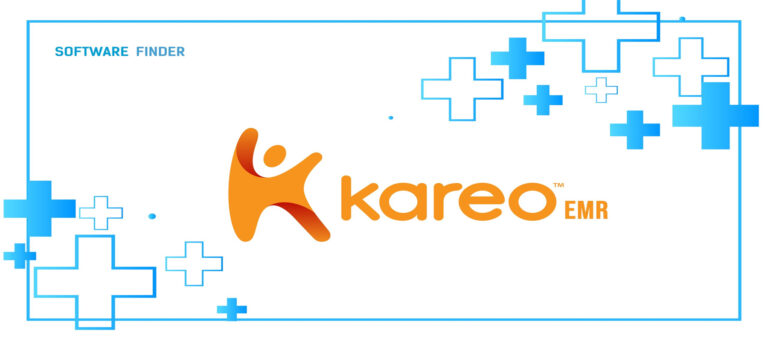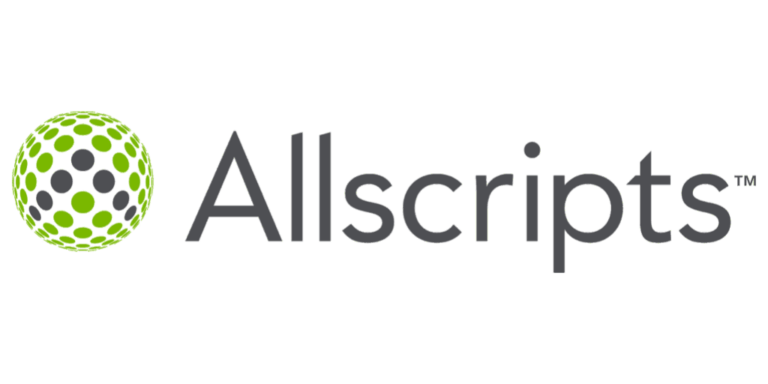Importance of EMR in Psychiatric Practice
In the field of psychiatry, EMRs hold particular significance. Mental health care often involves complex, long-term treatment plans and requires meticulous documentation of patient interactions, medications, and progress.
EMRs provide psychiatrists with powerful tools to manage this complexity effectively:
- Comprehensive patient history: EMRs offer instant access to a patient’s complete mental health history, including past treatments, medications, and therapy notes. This comprehensive view is crucial for making informed decisions about ongoing care.
- Enhanced medication management: Psychiatry often involves intricate medication regimens. EMRs help track prescriptions, dosages, and potential drug interactions, reducing the risk of medication errors.
- Improved continuity of care: In mental health treatment, continuity is key. EMRs facilitate seamless information sharing among different providers involved in a patient’s care, ensuring consistent treatment approaches.
- Efficient documentation: Psychiatric sessions often involve detailed note-taking. EMRs offer customizable templates and voice-to-text features that can significantly reduce the time spent on documentation.
- Data-driven insights: EMRs can generate reports and analytics that help psychiatrists identify trends in patient progress, treatment efficacy, and practice patterns.
By leveraging these capabilities, EMRs enable psychiatrists to provide more effective, patient-centered care while simultaneously improving practice management and efficiency.
As we delve deeper into this article, we’ll explore how EMRs are specifically enhancing patient care and practice efficiency in psychiatric settings.

Key Features of EMR Systems for Psychiatric Practice
The best mental health EMR systems designed for psychiatric practice offer specialized features that cater to the unique needs of mental health professionals. These features not only enhance patient care but also streamline practice management.
Let’s explore the key features that make EMRs particularly valuable for psychiatrists:
A. Customizable templates for psychiatric assessments
These templates can include:
- Initial psychiatric evaluations
- Follow-up visit notes
- Specific disorder assessments (e.g., depression, anxiety, ADHD)
- Mental status examinations
These templates save time, ensure consistency in documentation, and can be adapted to individual practitioner preferences or specific patient needs.
B. Integrated e-prescribing
E-prescribing is crucial in psychiatric practice due to the complexity of psychotropic medications. EMR systems with integrated e-prescribing offer:
- Direct transmission of prescriptions to pharmacies
- Access to patient medication histories
- Drug interaction and allergy checks
- Dosage calculators and medication schedules
This feature enhances medication management, reduces errors, and improves patient safety.
C. Secure messaging and collaboration tools
Psychiatric care often involves collaboration with other healthcare providers. EMR systems include secure communication tools that allow:
- HIPAA-compliant messaging between providers
- Sharing of patient information with authorized team members
- Coordination of care plans with primary care physicians or specialists
- Secure patient portals for direct communication with patients
These tools facilitate better care coordination and improve patient engagement.
D. Risk assessment and suicide prevention tools
Given the critical nature of risk assessment in psychiatry, many EMRs include specialized tools for:
- Suicide risk screening and documentation
- Crisis intervention planning
- Automated alerts for high-risk patients
- Tracking of risk factors over time
These features help psychiatrists identify and manage high-risk situations more effectively.
E. Treatment plan tracking
Psychiatric EMRs often include robust treatment plan management features:
- Creation and updating of individualized treatment plans
- Goal setting and progress tracking
- Integration of treatment plans with session notes
- Reminders for plan reviews and updates
This functionality helps ensure that treatment remains focused, measurable, and adaptable to patient progress.
By leveraging these specialized features, psychiatrists can significantly enhance their ability to provide high-quality, personalized care while maintaining efficient practice operations.
As EMR technology continues to evolve, we can expect these systems to become even more tailored to the specific needs of psychiatric practice.
Costs of Behavioral Health EMR Implementation
Initial investment:
- Software licensing: $200-$1000 per provider per month
- Hardware: $500-$5000 per provider (one-time cost)
- Training: $1000-$5000 per practice
Ongoing expenses:
- Subscription fees: $200-$800 per provider per month
- Maintenance and support: Often included in subscription, or 15-20% of license cost annually
Potential hidden costs:
- Productivity loss during transition
- Customization fees
- Data migration: $1000-$5000 depending on practice size
Cost mitigation:
- Cloud-based solutions for lower upfront costs
- Phased implementation
- Government incentives where available
While initial costs can be significant, many practices report long-term savings through improved efficiency and better patient care. A thorough cost-benefit analysis is recommended before implementation.
Note: Prices are approximate and can vary widely based on the specific EMR system, practice size, and location.
FAQ: EMR for Psychiatry
Some of the top-rated psychiatry EMR systems include TherapyNotes, ICANotes, and DrChrono. These systems offer features specifically tailored for behavioral health and psychiatry practices. It’s important to evaluate each based on your specific needs, such as integrated billing, electronic prescribing capabilities, and telehealth features.
EMR systems enhance medication management by providing electronic prescribing capabilities, including for controlled substances. They offer medication adherence tracking, drug interaction checks, and seamless integration with pharmacy databases. This improves patient safety and helps psychiatrists monitor treatment efficacy more effectively.
Yes, many modern EMR systems include integrated telehealth features. These allow for secure video appointments, virtual check-ins, and remote patient monitoring. This functionality has become increasingly important for ensuring continuity of care and improving accessibility for patients.
EMR systems designed for psychiatry prioritize privacy and security. They typically include features like role-based access controls, audit trails, and encrypted data storage and transmission. These systems are designed to comply with HIPAA regulations and other relevant privacy laws.
Patient portals integrated with EMR systems offer several benefits:
- Secure messaging between patients and providers
- Access to appointment scheduling and reminders
- Ability to complete intake forms and psychiatric evaluations online
- Access to treatment plans and educational resources
- Medication refill requests
EMR systems streamline workflow through:
- Customizable templates for psychiatric evaluations and progress notes
- Automated coding and claims submission
- Integrated scheduling and appointment management
- Task management and reminder systems
- Interoperability with other healthcare systems for seamless information exchange
Yes, there are many EMR solutions designed for solo practitioners and small group practices. These often include all-in-one practice management software that combines EMR functionality with billing, scheduling, and other practice management tools. Some popular options include TherapyNotes and ICANotes.
When evaluating EMR systems:
- Request demos from multiple vendors
- Check user reviews on platforms like Capterra
- Consider the system’s reputation and track record in psychiatry
- Assess the availability of training and support
- Evaluate the system’s flexibility and customization options
- Consider compatibility with your existing hardware and operating systems
Yes, many EMR systems include integrated billing features that can help streamline insurance claims processing, reduce denials, and improve overall revenue management. Look for systems that offer insurance verification, automated coding, and claims tracking functionality.
EMR systems designed for psychiatry often include features to support meaningful use requirements and compliance with healthcare regulations. This includes capabilities for generating required reports, tracking quality measures, and ensuring proper documentation for audits.
Many modern psychiatry EMR systems are designed to be intuitive and user-friendly. They often feature easy-to-navigate interfaces accessible via computer, tablet, or smartphone. Some, like Practice Fusion, offer “out of the box” solutions that require minimal setup.
Yes, many EMR systems for psychiatry and behavioral health include features to manage group therapy sessions. These tools often allow for efficient charting and billing for multiple patients simultaneously.
EMR systems often integrate telehealth features, supporting video appointments and virtual check-ins. This technology has become crucial for telepsychiatry, allowing psychiatrists to provide care remotely and improve accessibility for patients.
Yes, many EMR providers offer mobile apps that allow psychiatrists and other mental health professionals to access patient information, update charts, and manage appointments on-the-go using their smartphones or tablets.
Advanced EMR systems like AdvancedMD include electronic prescribing capabilities for controlled substances, ensuring compliance with regulations while streamlining the prescription process.
Some comprehensive EMR and practice management systems offer features to assist with provider credentialing. Additionally, they may include tools for gathering and managing patient testimonials, supporting reputation management efforts.
Modern EMR systems are designed with interoperability in mind, allowing for seamless exchange of health information with other electronic health records (EHRs) and healthcare databases. This supports continuity of care across different providers and settings.
Many EMR providers offer extensive resources to support the transition process. This can include training materials, video tutorials, user guides, and dedicated support teams. Some also provide options for data migration from existing systems.
EMR systems often include features to support Medicare compliance, such as tools for proper coding and documentation of services. They can also help track and report on quality measures required for Medicare reimbursement.
Yes, many EMR systems offer integration capabilities with various practice management software, creating an all-in-one solution for psychiatric practices. This can include features for scheduling, billing, and claims management.







Leave a Reply